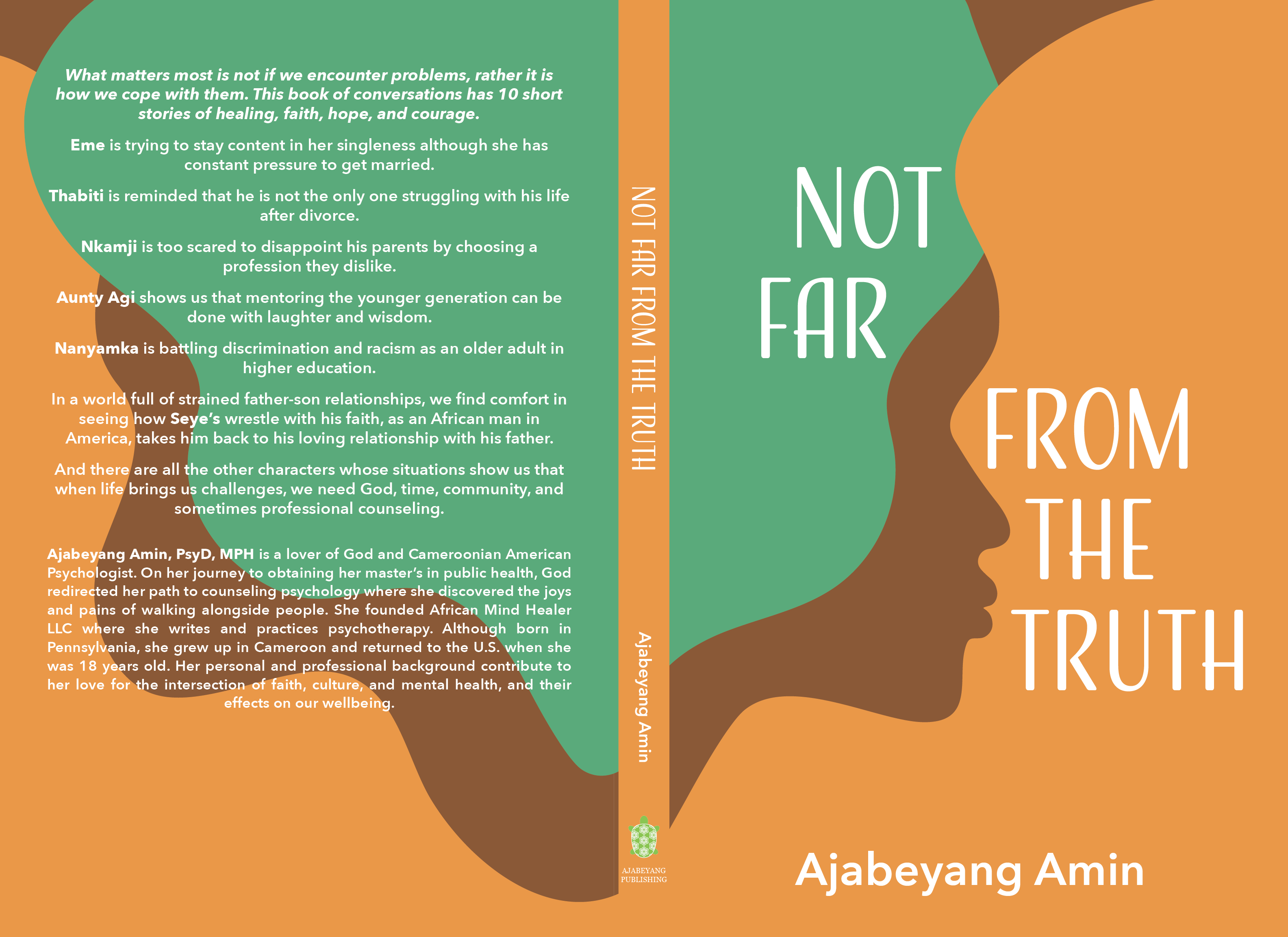Many of the challenges African immigrants face in the U.S. are because they leave a collectivistic culture to one that is individualistic. In many ways their worlds are thrown upside down and their confusion may not be so obvious. It can be difficult for the individual to understand what’s going on, not to talk of trying to explain it to others. It can also be aggravating explaining the challenges to relatives back home (in Africa) who think, “… but you’re in America, life is good there.”
I won’t go into detail on all the other aspects that make life in the U.S. different from back home (food, dress, climate, housing and work conditions, language, values and norms, social interactions, education process, and experiencing racism). That’s not my focus for this post (stay tuned for the next ones). The focus here is to explain the underlying cultural difference between the U.S. and most African countries. If you are not sure what I’m talking about, relax! Let me break it down for you…


Collectivism and individualism are terms used to express two cultural orientations to life. Think “We” versus “Me.” Collectivistic cultures focus on benefiting the needs of the social group while individualistic cultures prioritize autonomy and individual needs/goals.
Yes, you guessed it right: countries in Africa, Latin America, and Asia are mostly collective while those in North America and western and northern Europe are primarily individualistic. Additionally, people in rural areas tend to be more collective than those in urban areas.
Why does this difference matter?
Our cultural orientation affects our self-concepts (what we believe about ourselves), our social expectations, how we relate to others, how we raise our children, and more. Note that even though you may be from a particular cultural orientation, it doesn’t mean you naturally have this orientation. However, the culture in which you are raised does affect you.
The individual: People with individualistic orientations tend to describe themselves based on their inner attributes and self-determining concepts. While collectivists describe themselves contextually and in relation to others. Previous researchers categorized these into different traits. Individualistic traits included independence, creativity, assertiveness, competitiveness, curiosity, self-assurance, and directness. Collectivistic traits included respectfulness, attentiveness, obedience, humility, reciprocity, dutifulness, cooperativeness, conformity, traditionalism, and self-sacrifice.
Are you noticing how you describe yourself? What orientation are you leaning towards? Do you recognize any changes today from how you used to describe yourself in the past?
The society: Every society has certain norms and ideals. These are clearer or more spelled out in collective cultures. In some collective cultures, when someone does something outside of the acceptable norms, the consequences are viewed as more significant. This is because you are not only representing yourself, you represent your family and your community. Hence, for someone in a collectivistic culture choosing independence can be disruptive to the cohesion of the group. Individualistic cultures may have a variety of ideals and norms that are acceptable. Thus, these cultures tend to be more tolerant of individual differences.
Collectivistic cultures are known to have a higher power distance than individualistic cultures. This is one reason why it can be very difficult initially for African immigrants to call their teachers in the U.S. by their first name even when asked to. Calling someone in authority by their first name would hardly ever happen back home (in Africa). People who are older are called aunty, uncle, doctor, mister/misses, whatever title. In the U.S. the first name goes, there is a lower power distance.
Let’s take a closer look at each of these orientations…
Collectivistic cultures
Individuals acquire meaningful identity as a part of the group. Family and group goals are prioritized over individual goals. Hence why it is common for African parents to be concerned about how their children’s decisions will affect how they (the parents) are perceived in their communities. Decisions including where they go to school, whom they marry, what career they choose, you name it. In these cultures, community is huge. Community gatherings are common, and they happen somewhat naturally. People live more interdependently. They realize their need for each other. Therefore, individual decisions (both positive and negative) can have heavier consequences.
Other characteristics
- There is a lot of social support from relatives, friends, and neighbors
- Community support leads to less social isolation
- Community naturally comes together when someone is suffering/struggling
- Positive individual experiences can be magnified, thus promoting community pride
- Similarly, negative experiences can be magnified, hence, can lead to a lot of shame and possible rejection or large consequences from community
- There can be a challenge in understanding oneself apart from a group; self-knowledge can be limited
- The lines between “I/Me” and my group can be blurry, which can pose difficulties with boundaries. In fact, in some communities, boundaries are not an ideal.
Individualistic cultures
One’s personal identity, goals, abilities, and self-expression are highly valued over family or group goals/identity. Individualistic cultures prioritize independence and autonomy. These cultures are accepting of an emotional distance from their in-group. This does not mean that people in these cultures don’t value family and groups; but the individual views themselves as separate from their group.
Other characteristics
- Introspection and self-knowledge are promoted, thus people are encouraged to have a deeper understanding of their personal attributes
- There is greater independence and personal responsibility; this can be both positive and negative in that although one has more autonomy and freedom, it can lead to a lot of pressure on the self
- Negative and positive consequences of individual actions have a lesser effect on one’s family and society
- Risk for isolation, loneliness, and overly self-reliance is more common
Now, I hope this helps you have a better understanding of yourself, your parents, your friends, relatives, society at large.
The goal of this article is not to establish one orientation as better than the other. Rather, it is to provide information so you can begin to recognize why you and someone else think and/or act differently. Ultimately, regardless of the culture in which one was raised, a healthy balance is essential. Swaying too much on either side can present different challenges. To be a well-rounded individual, it is important to gain some self-knowledge and understanding and at the same time recognize our need for connection and community.
If you are interested in reading more on the topic, view the references below:
Eaton, L., & Louw, J. (2000). Culture and self in South Africa: Individualism-collectivism predictions. The Journal of social psychology, 140 (2), 210-217.
Grimm, S. D., Church, A. T., Katigbak, M. S., & Reyes, J. A. S. (1999). Self-described traits, values, and moods associated with individualism and collectivism: Testing IC theory in an individualistic (US) and a collectivistic (Philippine) culture. Journal of Cross-Cultural Psychology, 30(4), 466-500.
Ma, V., & Schoeneman, T. J. (1997). Individualism versus collectivism: A comparison of Kenyan and American self-concepts. Basic and Applied Social Psychology, 19(2), 261-273.
Triandis, H. C. (2001). Individualism‐collectivism and personality. Journal of personality, 69(6), 907-924.




2 Responses